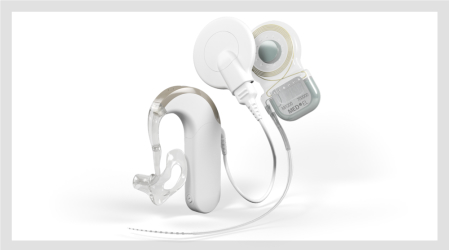- +91-11-4608 5246
- [email protected]
- Mon - Sat : 10:00 AM - 06:00 PM
Pre – Cochlear Implant Evaluation
Cochlear Implant devices facilitate people with sound who receive little or no benefit through hearing aids.
A pre-evaluation is a critical process of Cochlear Implant to assess the candidate’s functional hearing ability and verify whether these are likely to be radically improved through an implant. The assessment and procedure are conducted by a multidisciplinary team of experts with experience in working with deaf or young children with hearing problems.
Formal Pre-Cochlear Implant Evaluation Process
Step 1: Orientation
The purpose of the process is to orient the child and its family about the Cochlear Implant. Some of the general topics discussed with the family may include:
- What is the Cochlear Implant?
- Does Cochlear Implant work?
- Routine follow-ups and precautions
- Cost of implant
- Warranty and Insurance
Step 2: Initial Medical Evaluation
An ENT specialist determines if the patient is safe to undergo anesthesia to view an imagining of the cochlea through a CT or MRI Scan for insertion of an electrode array. The physician will obtain a full medical history including family or social history. The patient will be monitored for any relevant development and medical problem to ensure that no medical condition contradicts general anesthesia.
Step 3: Speech and Language Evaluation
A speech and language pathologist (SLP) performs an evaluation to look for patient overall ability to communicate, express language, play skills, speech production, and functional auditory skills. The SLP may discuss the potential growth of the patient in these respective areas. To gather this information, a variety of test is conducted:
- Standardised test
- Parent questionnaires
- Informal communication
Step 4: Audiological Evaluation
It is a series of a diagnostic procedure used for measuring type, degree, and configuration of hearing loss.
- Comprehensive hearing test: to measure the type and degree
- Cochlear implant evaluation: testing is performed with hearing aids
Step 5: Expectation discussion
The purpose of discussing the expectation of determining if family understands the limitations and scope of a cochlear implant.
Step 6: Psychosocial and Neuropsychology Evaluation
A psychosocial assessment looks at the determinants those influence benefits and adjustment of a cochlear implant. For example, if family behaviour acts as a dynamic between the benefit of the cochlear implant, then appropriate intervention can be recommended. A cochlear implant patient is referred for neuropsychology evaluation if there are some cognitive impairment challenges that can impact the ability post-implant.

